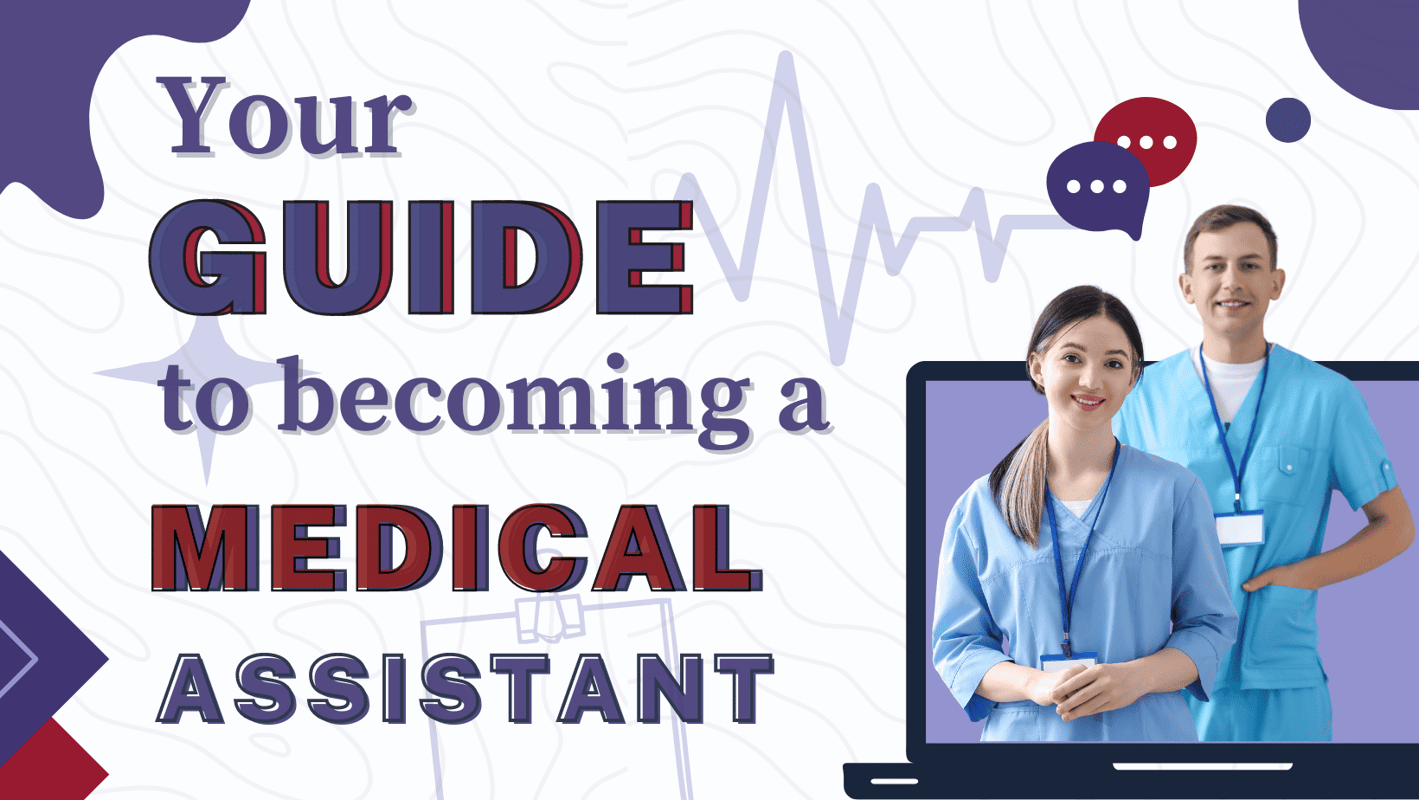How to Become a Medical Assistant

With over 790,000 Medical Assistant jobs in the U.S., this fast-growing healthcare role offers strong career potential and quick entry. This guide explains how to become a Medical Assistant, including the required certification, training programs, medical assistant salary, and a clear job description—so you can start your path with confidence.
How fast can you become a Medical Assistant?
You can become a Medical Assistant in as little as 9 months by completing a diploma or certificate program. Associate degree programs take around 2 years, but shorter programs are ideal for those who want to start working quickly.
What degree is best for a Medical Assistant?
Most Medical Assistants choose between a certificate/diploma or an associate degree. While both are effective, an associate degree may offer more opportunities for advancement and a stronger foundation if you plan to pursue other healthcare careers later.
Which Medical Assistant gets paid the most?
Medical Assistants with certifications (like CMA or RMA) and those working in specialty practices—such as cardiology or outpatient surgery—tend to earn the highest salaries. Experience, location, and additional skills like phlebotomy or EHR management can also boost pay.
How Much Do MAs Make?
Per the U.S. Bureau of Labor Statistics, as of May 2024, MAs earn a mean annual wage of $44,720 ($21.50 hourly). Employment is expected to rise 15% from 2023 to 2033.
Career Advancement
MAs enjoy excellent upward mobility. With extra training or certifications, you could move into roles such as:
Electronic Health Records Specialist
- Maintain and secure patient data electronically
- Ensure compliance with privacy laws
- Possibly train other staff on EHR systems
Physician Assistant or Nurse Practitioner
- Diagnose and treat patients (under supervision)
- Perform procedures and prescribe medications
- Requires advanced education (master’s level or specialized training)
Registered Nurse (RN)
- Provide direct bedside care
- Administer medications and monitor patient conditions
- May specialize in specific areas like pediatrics or oncology
Final Thoughts
Becoming a Medical Assistant opens doors to a stable, rewarding career. You’ll master both clinical and administrative skill sets, help patients daily, and grow professionally in the healthcare sector. Ready to take the next step? Explore accredited MA programs on Dreambound, and hear from real students about their experiences.
“Dreambound gave me many many many opportunities and choices to look through. It helped me obtain very important information to help me with a decision on a course and schedule. I am very confident that with the help of Dreambound, I am going to find something and go through with my career. Thank you.”
– Amani Crawford
Further Resources
Dreambound offers in-depth guides for city-specific and online training options:
- Medical Assistant schools near me in Las Vegas
- Medical Assistant schools near me in San Bernardino/Riverside
- Medical Assistant schools near me in Memphis
- Medical Assistant schools near me in Deltona
- Medical Assistant schools near me in Dayton
Searching for online courses? Check out:

Fel is a student support representative who guides enrollees to the right program and answers their queries. She's committed to helping students and takes pride in her work. In her free time, she enjoys sightseeing and hanging out with loved ones.




